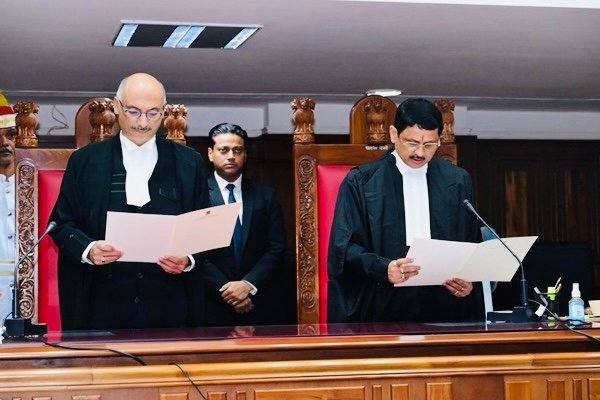Agartala, July 30, 2025: Nestled in the remote hills of Tripura, hundreds of Reang tribal families in the Atharomura Mura hills continue to lead a life of hardship relying heavily on traditional ‘Jhum farming’ for their livelihood. With no access to electricity, clean drinking water, proper roads or healthcare, these communities remain far removed from the benefits of modern development.
Despite the growing challenges of survival, families here practice Jhum cultivation, an age-old method involving the clearing and burning of forest land to grow crops like paddy, ginger, pumpkin, chilli and sorghum. However, with shrinking forest cover and increasing population pressure, the fallow cycle of land has drastically reduced from 15–20 years to just 2–3 years, leading to soil degradation and declining productivity.
“We survive on Jhum farming, but we don’t get any loans or support from the government. Even drinking water and electricity are still a dream,” said a local farmer from the Hadhupa area, reflecting the sentiments of many.
Local panchayat sources confirmed that several families in the Atharomura hill areas are still excluded from key welfare schemes, including the ‘Digital Jhum’ project, agricultural subsidies and food security programmes. While the TTAADC has held training camps in some parts of the district, the remotest villages remain untouched by such efforts.
Recognising the urgent need for intervention, Tribal Welfare Minister Bikash Debbarma and MDC Bhumika Nanda Reang recently visited the Hadhupa area to interact directly with the community and assess their problems.
“The government is committed to improving the quality of life for hill farmers. Road connectivity projects and Jhum-based cooperatives are being planned to integrate these areas with the mainstream,” said Minister Debbarma during his visit.
He also urged villagers to prioritize children’s education, stop child marriages, and work together to create a drug-free society.
“Jhum farming is not only a tradition but also an environmentally balanced agricultural system. However, it must be adapted with modern techniques and adequate government support to remain viable,” the minister added.









